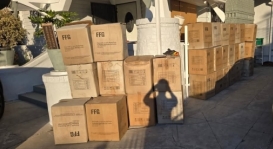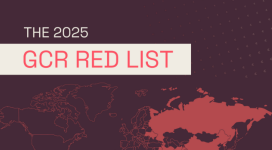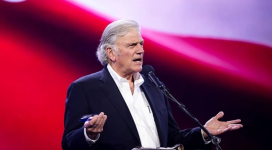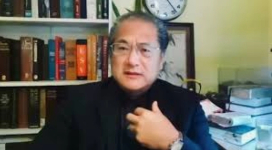The Week of Prayer for Christian Unity ended Sunday, Jan. 25, with many graceful reflections on this year’s theme, “My peace I give to you,” from diverse churches across the globe.
In Rome, Pope John Paul II opened the Week of Prayer with the words, “"Over the next eight days, Christians of diverse denominations and traditions will gather together to pray intensely to the Lord that He will strengthen the common commitment for their full unity.”
He ended the week with a message, saying, "Christian unity has been the constant anxiety of my pontificate and continues to be a particular priority of my ministry," the pontiff said in his weekly angelus message.
In Mumbai, India, ecumenical leaders from dozens of countries met with delegates to the Fourth World Social Forum to open the week, Jan. 18.
The general secretary of the National Council of Churches in India which sponsored the event, Rev. Dr Ipe Joseph said that the church in India is "uniquely blessed with the opportunity of hosting the national and global ecumenical community" for the World Social Forum and the Week of Prayer at the same time.
In London's Catholic Westminster Cathedral, the leaders of both the Greek and Russian Orthodox Churches for Britain and Ireland were invited to lead inter-church services. On January 17, Bishop Basil of Sergievo celebrated Russian Orthodox Great Vespers, and the following day, Archbishop Gregorios of Thyateira gave the sermon following the Mass.
In North America, congregations of the Presbyterian Church (USA) organized special services throughout the country. According to the church's associate for ecumenical programming Kathy Reeves, "observance of the Week of Prayer for Christian Unity is one way that Presbyterian Christians can bear witness to our belief that, through our Lord, we are indeed united with Christians everywhere through our common faith".
In the Middle East region, prayer books and posters are prepared by the Middle East Council of Churches, and adapted by the local Christian communities. In Damascus, Syria, where the heads of several Eastern Christian churches are based, the closing prayer for the week will be hosted on 24 January in the Cathedral of the Greek Orthodox Church of Antioch. In neighbouring Lebanon, the week opened with a Mass in the St George Maronite Cathedral in Yarze, and a series of events was organized by the local churches in Beirut, including a public concert by church choirs, conferences, and services in several churches.
In Lubumbashi, in the Democratic Republic of Congo, the week of prayer was organized in all seven communes of the city, and involved all the main churches in the country, including Catholic, Orthodox, Methodist and Lutheran, ten independent churches and even Muslim groups.
In Geneva, Switzerland, the Assembly of Churches and Christian Communities organized a special afternoon of encounter, exhibitions and worship on the theme of peace on 18 January, at the headquarters of the World Council of Churches. Several hundred participants from Protestant, Orthodox and Catholic communities in the international city were welcomed by the music of the local Kimbanguist African Church, and were greeted by the new WCC general secretary Rev. Dr Samuel Kobia.
In Aleppo, Syria, where the material for the 2004 even was penned, the Syrian Orthodox archbishop of Aleppo opened a Jan. 23 service, while Bishop Antoine Ode offered a sermon for the gathering.
The Week of Prayer, a joint production by the World Council of Churches and the Vatican's Pontifical Council for Promoting Christian Unity, began in the 19th century, and was popularized by the Catholic father Paul Courtuier of Lypon. For Couturier, the Week was a time to focus on the unity of Christians, as well as on the unity of mankind. "We must pray not that others may be converted to us, but that we may all be drawn closer to Christ... The spiritual horizon of the Week of Prayer for the Unity of Christians is not merely Christianity, it is the redemption of humankind," he wrote.







